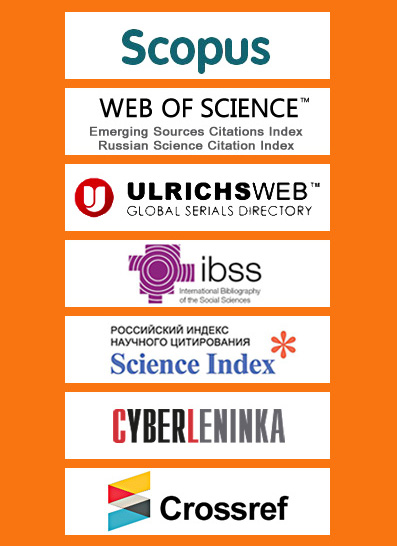Освещение сексуального насилия над детьми в цифровых медиа с точки зрения людей, переживших насилие, журналистов и психологов
Аннотация
Ответственная журналистика играет ключевую роль в формировании общественного понимания проблемы сексуального насилия над детьми (СНД). При этичном подходе к освещению СНД в медиа можно пролить свет на проблему, опровергнуть мифы и уведомить читателей о мерах предотвращения насилия; и напротив, небрежное или неэтичное освещение может усугубить ситуацию, мифологизировать проблему и причинить вред людям, пережившим насилие. В настоящее время опубликовано достаточно большое количество исследований и обзоров о том, как СНД представлено в медиа. В то же время мы можем отметить дефицит исследований, сосредоточенных на взглядах и опыте прямых участников медийного освещения. Цель данного исследования заключается в выявлении влияния освещения СНД на работников СМИ, психологов, специализирующихся на помощи детям, которые пережили сексуальное насилие, а также на поддержке взрослых, переживших сексуальное насилие в детстве. Для достижения этой цели мы провели серию из двенадцати экспертных интервью. Среди интервьюируемых – два представителя цифровых медиа, восемь психологов и двое активистов, переживших СНД. Все участники исследования имели опыт, связанный с освещением сексуального насилия над детьми в медиа. В частности, представители СМИ публиковали статьи и интервью об СНД, люди, пережившие насилие, давали интервью о своем травматическом опыте, психологи обеспечивали экспертные комментарии для медиа либо профессионально сопровождали случаи СНД, которые получили значительное освещение в медиа. Интервью проводились в два этапа – с октября по ноябрь 2021 года и с августа по сентябрь 2023 года в онлайн-формате – и продолжались от 60 до 90 минут. Перед началом исследования все участники дали устное добровольное информированное согласие на участие в интервью. Данные обрабатывались с помощью дедуктивного и индуктивного качественного анализа. В статье констатируется, что цифровые медиа часто нарушают этические нормы с серьезными последствиями для пострадавших. Несмотря на законодательство, защищающее персональные данные, публикации часто дают возможность идентифицировать переживших насилие, вызывая серьезные эмоциональные последствия. По мнению опрошенных, пережившие СНД и их семьи могут постоянно испытывать страх перед освещением преступления в медиа, что приводит к усилению стресса и симптомов психической травмы, препятствует процессу реабилитации.
Участники исследования считают, что освещение СНД в средствах массовой информации играет важную роль в формировании общественного мнения по этой проблеме. Публикации часто создают мифы о СНД из-за использования некорректной терминологии, эвфемизмов и отсутствия контекста. Интервью с пережившими СНД, напротив, помогают преодолеть мифы, поддержать переживших насилие и повысить осведомленность общества об этом преступлении. Участники подчеркивают важность соблюдения этических требований, связанных с интервьюированием переживших СНД. Важно убедиться, что они достигли совершеннолетия и что приняты меры по защите их конфиденциальности. Также необходимо уважать их добровольное решение поделиться своей историей и обсудить возможные последствия этого решения, такие как стигматизирующие комментарии и обращения других людей, также переживших насилие. Психологи, сопровождающие переживших СНД в ходе расследования, также сталкиваются с серьезными последствиями освещения преступлений в медиа, такими как манипуляции с целью оправдания подозреваемого и предвзятое освещение, которое благоприятствует подозреваемому и маргинализирует опыт пострадавших. Несмотря на сложности, собеседники отмечают положительную тенденцию к появлению более информативной и продуманной журналистики, освещающей проблему СНД в цифровых медиа в России, что отражается как на количестве, так и на качестве публикаций. Одним из важных выводов исследования является констатация различия во взглядах между представителями медиа, с одной стороны, и психологами, а также людьми, пережившими СНД, с другой: их различающиеся цели и мотивации могут как дополнять, так и противоречить друг другу. В то время как первые стремятся привлечь внимание к проблеме СНД любыми средствами, вторые склонны уделять большее внимание оценке рисков и последствий медиапубликаций для людей, переживших СНД, в частности и общества в целом. Обсуждая результаты исследования, авторы статьи отмечают, что взгляды участников на проблему освещения СНД в СМИ во многом совпадают с критериями качества медийных публикаций о СНД, предложенными Н. Доринг и Р. Уолтером [Döring, Walter 2020]. Однако следует отметить, что в то время как Н. Доринг и Р. Уолтер подчеркивают важность сбалансированного учета точек зрения жертвы преступления и подозреваемого, участники нашего исследования категорически не согласны с этим критерием, отмечая риск усиления маргинализации жертв и призывая к отказу от противопоставления голосов пострадавшего ребенка и подозреваемого в насилии.
В заключении авторы статьи предлагают несколько рекомендаций для медиапрофессионалов. Журналистам следует стремиться к менее сенсационному освещению и более эффективной защите конфиденциальности жертв. Использование корректной терминологии и тона поможет избежать создания мифов при освещении СНД. Помещение случаев СНД в контекст с использованием статистики, законодательства и экспертных комментариев, а также привлечение внимания к вопросам профилактики способствуют более позитивному подходу к решению этой проблемы. Введение этических принципов относительно освещения СНД необходимо для предотвращения неэтичной и предвзятой публикации и защиты прав участников публикаций. Подготовка публикаций в сотрудничестве с людьми, пережившими СНД, и профессионалами может способствовать созданию качественных, этичных и значимых медиаматериалов.






